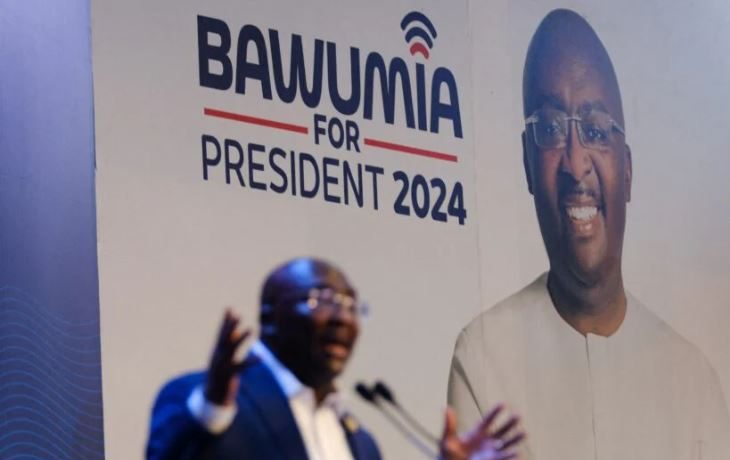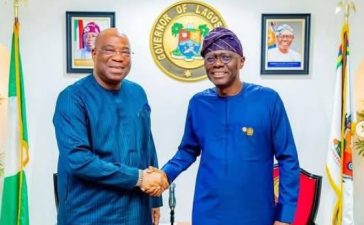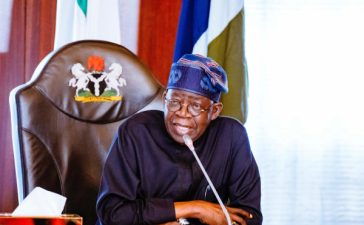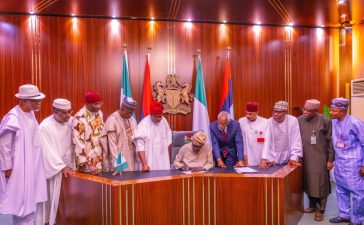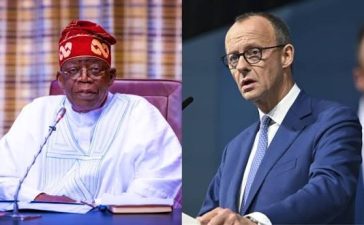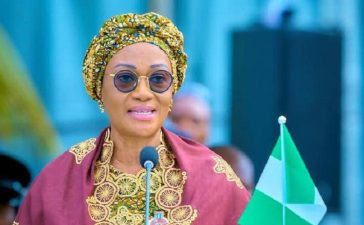The race for Ghana’s presidency is heating up as the two leading contenders, ex-President John Dramani Mahama and Vice President Mahamudu Bawumia, have launched competing manifestos that promise to steer the nation out of its most severe economic downturn in a generation.
Ghanaians are set to go to the polls on December 7th to elect a successor to President Nana Akufo-Addo, who is stepping down after serving the maximum of two terms allowed under the country’s constitution. The election is expected to be a tightly contested battle between Mahama, representing the National Democratic Congress (NDC), and Bawumia, the flagbearer of the ruling New Patriotic Party (NPP).
Mahama’s Vision: Education and Anti-Corruption
John Mahama, 65, a seasoned politician who served as president from 2013 to 2017, has pledged to eliminate first-year university fees as part of his strategy to enhance access to tertiary education. Addressing his supporters in Winneba over the weekend, Mahama also vowed to reduce taxes during his first three months in office and lead an aggressive campaign against corruption.
“I will lead a ruthless war against corruption and recover misappropriated assets,” Mahama declared, emphasizing his commitment to restoring integrity in government. While his previous administration was marred by allegations of economic instability, power shortages, and state corruption, Mahama has not been directly implicated in any wrongdoing. He aims to leverage his experience and rectify past shortcomings to build a more transparent and efficient government.
Bawumia’s Promise: Digital Transformation and Fiscal Discipline
On the other side, Vice President Mahamudu Bawumia, an economist and former central banker, has presented a manifesto centered on economic reforms and digital innovation. Speaking to the press in Accra, Bawumia outlined his plan to simplify Ghana’s tax system, reduce the number of ministers by nearly half, and curtail public spending by 3% of GDP.
Bawumia’s ambitious vision includes providing digital training for one million young Ghanaians, aiming to equip them with the skills necessary for the evolving job market. This initiative, he argues, is crucial for addressing the country’s high unemployment rates and ensuring sustainable economic growth.
Economic Crisis at the Forefront
The election comes at a critical time for Ghana, a nation grappling with the aftermath of a severe economic crisis. In 2022, Ghana defaulted on the majority of its $30 billion external debt after years of excessive borrowing, exacerbated by the COVID-19 pandemic, the global impact of the war in Ukraine, and rising interest rates. The Akufo-Addo administration sought a $3 billion support package from the International Monetary Fund, which necessitated a comprehensive debt restructuring program.
Both Mahama and Bawumia are promising a path to economic stability, though their approaches differ significantly. Mahama’s infrastructure-focused legacy and plans for educational reform contrast with Bawumia’s emphasis on digital transformation and fiscal prudence.
Historical Context and Regional Dynamics
Ghana’s electoral history adds another layer of complexity to the upcoming vote. No party has ever secured more than two consecutive terms in government since the country’s return to democracy. This historical precedent places additional pressure on Bawumia to convince voters that the NPP deserves another term.
Interestingly, both candidates hail from northern Ghana, a region traditionally dominated by the NDC but where the NPP has made significant inroads in recent years. This shared regional background may influence voting patterns and campaign strategies as both candidates seek to consolidate support in a key electoral battleground.
As the election date approaches, Ghanaians face a pivotal choice between two distinct visions for the future. Whether they will favor Mahama’s promises of educational reform and anti-corruption or Bawumia’s pledges of digital empowerment and fiscal discipline remains to be seen in this closely watched contest.

